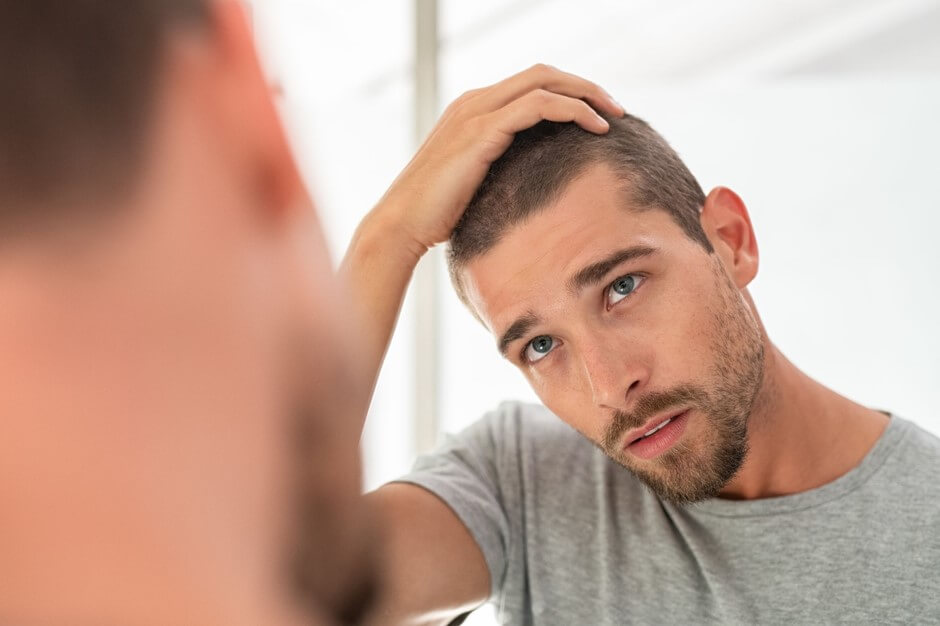Changing your lifestyle to combat hair loss

For many men, losing their hair can be something they struggle with. While some men embrace their new look, others prefer to keep as much of their hair for as long as they can. It's a personal choice, and if you're struggling against hair loss, there are things that you can do about it.
Hair loss treatments
It can be difficult to know which hair loss treatment is the best for you and which provider to trust. Relief Seeker allows you to compare some of the best treatments offered by top health care providers. You can see the benefits and which one matches your needs the most by comparing Keeps vs. Roman vs. Hims. Whether you want a provider that allows payment by installments, products tailored to you for you to try at home in between treatments, or online advice and clinics for extra convenience, you will find what you're looking for.
Changing your shampoo and conditioner
Something as simple as changing your shampoo and conditioner can help to reduce the amount of hair you lose. Many shampoos and conditioners will state what type of hair they are created for, or the purpose of using each particular product. Anything that mentions strengthening your hair is a good start. In addition, ingredients you should look for include biotin, finasteride, ketoconazole, and dihydrotestosterone (DHT) blockers. These all help you in your struggle with hair loss by strengthening your hair, preventing testosterone from being produced into DHT, and promoting hair growth. As hair loss is linked to over-producing DHT, anything that restricts this production can help to control it.
Reduce stress
Some people may joke about how someone will cause them so much stress and worry that their hair will fall out. However, there is a real connection between stress and hair loss. Some things that you can do to reduce stress include exercising regularly, taking up meditation and, if the stress is particularly bad, seeing a therapist. Each of these has its own benefits.
Talking to someone can help – even just airing your problems and possibly seeing a solution that you might have missed otherwise can leave you feeling lighter, even if very little has actually changed. Exercise can help you work out pent-up stress and improve your mood as you fall into a routine and see positive results. Meditation allows you to clear your mind and focus on the present moment. It takes practice, but can be worth it in the long term. While none of these things are guaranteed to reduce your hair loss, alongside professional treatment, you will likely see positive results and a fuller head of hair than if you didn't attempt them. You may even see more problems, such as hair thinning or falling out, to begin with, as any change to your routine can cause or elevate stress. However, if you stick with it, your stress levels do reduce to less than they currently are.
Think more about who you spend your time with
Of course, most people have their own problems, but some seem to have the same recurring issues and do nothing about them, while others are always looking for solutions. This is the main difference between positive and negative people. If you find yourself constantly trying to help negative people and getting nowhere, it is worth taking a step back. This is not to say that you should cut them out of your life completely, but do whatever you need to reduce the stress that their negativity causes you. Spending time around positive people will reduce your stress. Again, this won't cure hair loss, but it might help if stress is the partial cause of it.
Watching what you eat
The food you eat can affect the strength and condition of your hair, and can sometimes cause or add to your hair loss. It's therefore important to think about this when planning what to eat. Too much vitamin A or sugary foods, and not enough protein, iron or zinc, can all contribute to the problems. You can take supplements, but getting these from foods is the better option.
Some of the foods you should eat include red meat (in small quantities), soybeans, spinach and eggs. If you can, you should see your doctor to be tested for any deficiencies so that you can get a better idea of what you need to be consuming more of.
While there is no sure-fire way to cope with hair loss by yourself and treatment is often the best option, changing your lifestyle and replacing bad habits with good ones can all help to decrease the problem.
839GYLCCC1992



Leave a Reply